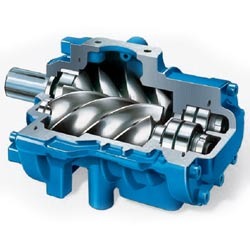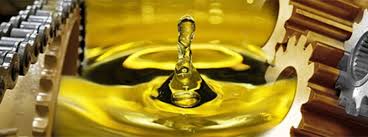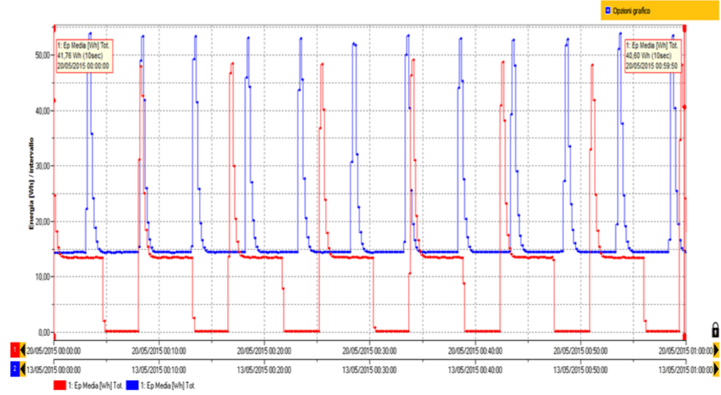 Do you want to reduce maintenance costs without overhauling your facility? Do you think you have obtained maximum performance and efficiency from your machines? Do you want to "save" without making large investments? The solution is easy. Find out how by reading this article. At the end you can download a detailed economic analysis and check the considerable cost reduction that can be obtained with the use of a synthetic lubricating oil for rotary compressors compared to a normal mineral oil.
Do you want to reduce maintenance costs without overhauling your facility? Do you think you have obtained maximum performance and efficiency from your machines? Do you want to "save" without making large investments? The solution is easy. Find out how by reading this article. At the end you can download a detailed economic analysis and check the considerable cost reduction that can be obtained with the use of a synthetic lubricating oil for rotary compressors compared to a normal mineral oil.
20/20/20 Goal: Climate Energy Package
For years, companies have been working to find increasingly innovative solutions to achieve the goal of optimizing their resources, while respecting the environment and company policies. The European Union is also taking action in this direction, which is pushing on three fronts, clarified and explained by Directive 2012/27/EC, following the drafting of the Climate Energy 20/20/20 package, which consists of:
- 20% reduction in greenhouse gas emissions by EU countries compared to 1990;
- 20% reduction in final energy consumption by the EU countries themselves;
- Conversion of 20% of energy production from non-renewable sources to renewable ones.

In view of the above, the European Union itself obliges large companies to undergo energy audits and the Member States to disseminate and promote information in a clear and simple way.
What can a medium-small industrial company actually do?
In this article we will analyze the more "practical and operational" aspects to obtain efficiency and savings starting from one of the most common machines in a company:
- Preliminary and fundamental operations for optimizing the performance of the machines.
- Choice of lubricating oil suitable for application in the operating conditions of the machine.
- Measurements of actual energy consumption
For simplicity, let's consider the classic air compressor, operating in almost all industrial production companies. The following considerations can be "multiplied" by the number of units present in the production departments with the logical result that the higher the number of compressors in operation, the greater the economic advantage. We are talking about cost reduction!
When asked to reduce the maintenance costs of an air compressor, purchasing agents insistently try to find the best suppliers on the market in terms of cost and quality of the products. We are looking for the cheapest oil filter, the cheapest lubricating oil, the cheapest separator filter...
But once all this is done, can you still save money? Of course!
1) Preliminary operations
First of all, it is necessary to carefully evaluate the choice linked to the physical positioning of the compressor. It must be in a room where good air circulation is guaranteed, where the temperature is neither too hot nor too cold, both for the machine but also to avoid thermal shocks to mechanical components and lubricating oil.
Furthermore, great attention must be paid to:
- Compressor operating times: sometimes they are independent of our will and established by production needs. In some cases, the insertion of a compressed air storage tank would be sufficient to avoid continuous restarting and shutting down of the machines: in fact, the peaks of energy absorption are found precisely in the starting phases of the compressor.
- Cleaning the filters, both the air and oil filters: the maintenance operation in this case has a dual function. As regards the air, facilitating the introduction of the "fluid" to be compressed allows the machine to reduce the operating times to a minimum, also avoiding introducing foreign bodies such as dust, solid particles, grease... etc into the compression chamber. As for the oil filter, its cleaning and replacement at regular intervals allows the lubricant to work correctly without the risk of excessive overheating, lamination, evaporation etc.
2) Choice of lubricating oil
For more details related to the technical characteristics that a good lubricating oil must have, we invite you to read the related article on the lubrication of rotary compressors at this link.

Based on the experiences of users of the most common air compressors, we point out that the use of synthetic lubricants for screw compressors makes it possible to achieve high performance and greater efficiency from an energy point of view compared to classic oils of mineral origin.
Obviously, with a synthetic lubricant with a low coefficient of friction and with all the improvement properties compared to the classic mineral lubricant, it is possible to optimize the machine:
- Reduce energy absorption in the starting phase
- Reduce energy absorption under the same operating conditions
- Less evaporation loss and therefore fewer refills
- Better protection against wear and corrosion thanks to the improved stability of the lubricating film.
3) Measurement of results
By way of example, the graph below shows the behavior of two mineral lubricating oils compared to a synthetic solution, inserted in the lubrication chambers of an Atlas Copco GA 15 compressor in operation in a small industrial company.
The graph shows the energy absorption values as a function of time. The test lasted a total of 168 hours.

The graphs show the absorption conditions in operation:
1) During the start-up phases when the compressor restarts, you see the peaks repeated at regular intervals in the time intervals
2) In nominal operation of the machine (flat lines).
Conclusions
As you can see, the differences are significant both in terms of starting and operating conditions. It's about a 5/10% energy efficiency saving in absolute value under the same conditions. In economic terms, reductions of over 40% were achieved.



